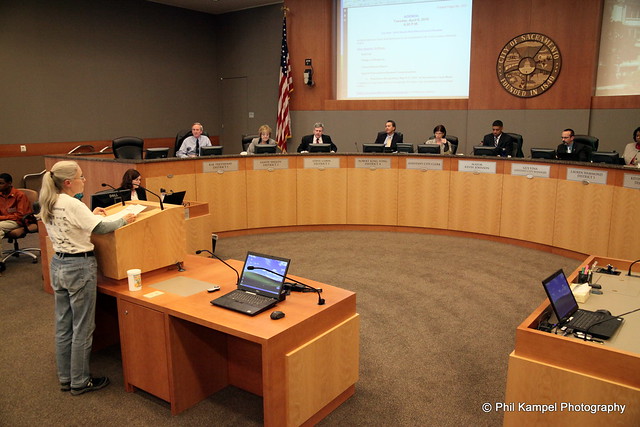After public safety, economic development is the backbone and engine for growth in any city. Sacramento continues to sit in the shadow of such Bay Area greats as San Francisco and the entire Silicon Valley. One might suppose that the Council is interested in economic improvements city-wide with all of the investment in sports infrastructure, but that couldn't be farther from the truth.
Sacramento still relies heavily on government employees for its economic health. And jobs that aren't related to government are heavily biased toward low-wage and part-time work. Indeed, even jobs created by sporting entertainment will be among those two categories. Does the budget support economic development for full-time highly skilled employment?
If the Council's investment in economic development planning is any indication, no. The City will completely divest itself from economic planning, and instead give a mere $188,000 to Greater Sacramento - an organization of citizens and businesses who want to see the City's economy improve. We could probably all agree that any organization of leaders that aren't our City Council can do a better job of planning for Sacramento’s future - but then why are Council Members getting $790,000 more next year? Shouldn't this money be going to those that are actually doing the work to pull Sacramento out of the debt that the Council got into?
And even if you think that businesses should fund their own economic development, what about the city's 'rainy day fund'? Shouldn't Sacramento leaders be planning for the next economic downturn so we don't have to cut our police and fire by another 25%, or raise taxes on already struggling families? No, not in this budget. The proposed budget notes "recommendations for funding the [Economic Uncertainty Reserve] will be considered as funding is identified."
Basically, Council has no self-control when it comes to spending our money. Even though they have themselves identified a goal of 10% reserve, and they are still $1.5 million short of that goal, there are no plans to save for our future.
One might also hope that the City intends to directly help small businesses establish a presence in Sacramento, large businesses hire skilled workers (which we have many of that commute to the Bay or foothills), or new economic opportunities that want to establish a presence here. Instead of simple and important measures such as tax relief, permitting streamlining, and start-up incentives that are being used by neighboring communities, the Sacramento Council will spend its time and resources contemplating a better business climate.
The budget prioritizes finding "access to" foreign investments (but no assistance), pursuit of grant dollars for infrastructure (none of which have been secured), and enhancements to the city's website (yay, can we have emoji please?). Oh, and they save the best for last. The Council wants to "engage with the Greater Sacramento Area Economic Council" and "strengthen relationships with regional partners" - because this is a new concept and they haven't been doing their job over the last year.
How does that $25,000 raise for each City Council Member sound now?

















